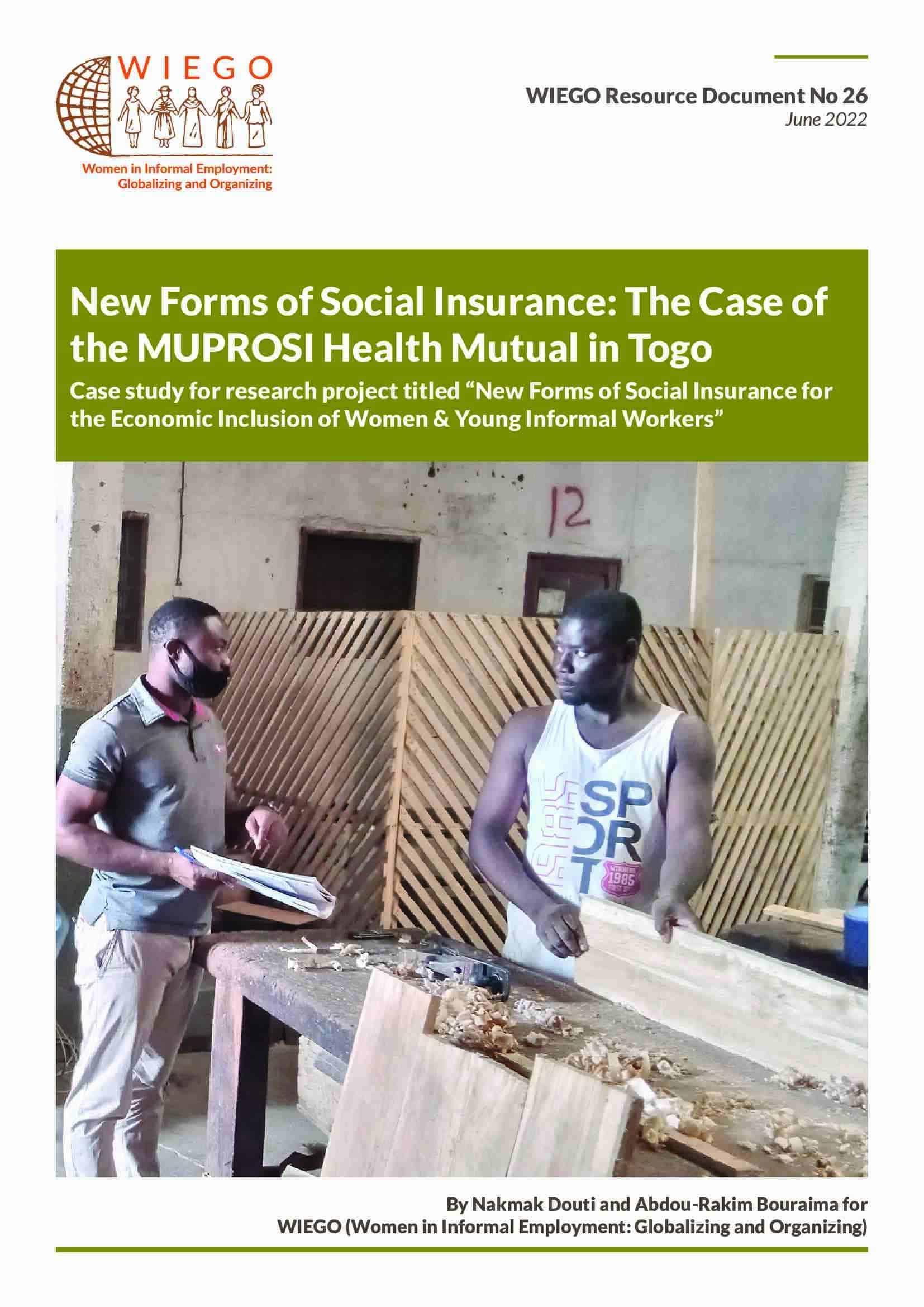New Forms of Social Insurance: The Case of the MUPROSI Health Mutual in Togo
Key Points
- In Togo, workers in the informal economy (90.7 per cent of the total workforce) are excluded from the state’s social protection provisions. In an effort to fill the gap, NGOs, associations, workers' unions and religious congregations have initiated community or trade union health mutuals. Twenty-nine mutuals, including MUPROSI, have been set up throughout Togo and they offer health insurance benefits only.
- At national level, health mutuals cover about 2 per cent of the population – out of the 8 per cent of Togolese covered by health insurance. Although the health-care packages offered remain modest, the members welcome the relief that this brings when they most need it.
- MUPROSI is in a complicated situation and needs to be restructured. Governance must be improved and financial empowerment must be sought to give the health mutual a chance for a new start.
- Health mutuals need a clear regulatory framework, and this is missing in Togo. This means that health mutuals are not included as actors in the country's proposed universal health scheme. MUPROSI is a member of CNCMUT – an umbrella organization for Togo's health mutuals which is advocating for the implementation of the regional WAEMU regulation on mutuality that provides a legal framework, basic principles, purpose, rights and obligations of mutuals and their members.
- Among the study’s recommendations are that MUPROSI get grant support to employ dedicated staff; raise efforts to recruit more members; increase the number of contracted health centres, with improved services and access to generic medicines.
View list of all: Resource Documents

Citation Information
. New Forms of Social Insurance: The Case of the MUPROSI Health Mutual in Togo. WIEGO Resource Document No. 26, , . WIEGO, 2022. https://www.wiego.org/wp-content/uploads/2022/06/RD 26 - MUPROSI case study for web.pdf. (2022). New Forms of Social Insurance: The Case of the MUPROSI Health Mutual in Togo. WIEGO Resource Document No. 26, , . https://www.wiego.org/wp-content/uploads/2022/06/RD 26 - MUPROSI case study for web.pdf. "New Forms of Social Insurance: The Case of the MUPROSI Health Mutual in Togo." WIEGO Resource Document No. 26, WIEGO, 2022, .. "New Forms of Social Insurance: The Case of the MUPROSI Health Mutual in Togo." WIEGO Resource Document No. 26 (2022). https://www.wiego.org/wp-content/uploads/2022/06/RD 26 - MUPROSI case study for web.pdf 2022, 'New Forms of Social Insurance: The Case of the MUPROSI Health Mutual in Togo', WIEGO Resource Document No. 26, , . https://www.wiego.org/wp-content/uploads/2022/06/RD 26 - MUPROSI case study for web.pdf, 'New Forms of Social Insurance: The Case of the MUPROSI Health Mutual in Togo' (2022) WIEGO Resource Document No. 26 . New Forms of Social Insurance: The Case of the MUPROSI Health Mutual in Togo. WIEGO Resource Document No. 26. 2022. https://www.wiego.org/wp-content/uploads/2022/06/RD 26 - MUPROSI case study for web.pdf. New Forms of Social Insurance: The Case of the MUPROSI Health Mutual in Togo. WIEGO Resource Document No. 26. 2022. , . https://www.wiego.org/wp-content/uploads/2022/06/RD 26 - MUPROSI case study for web.pdf
